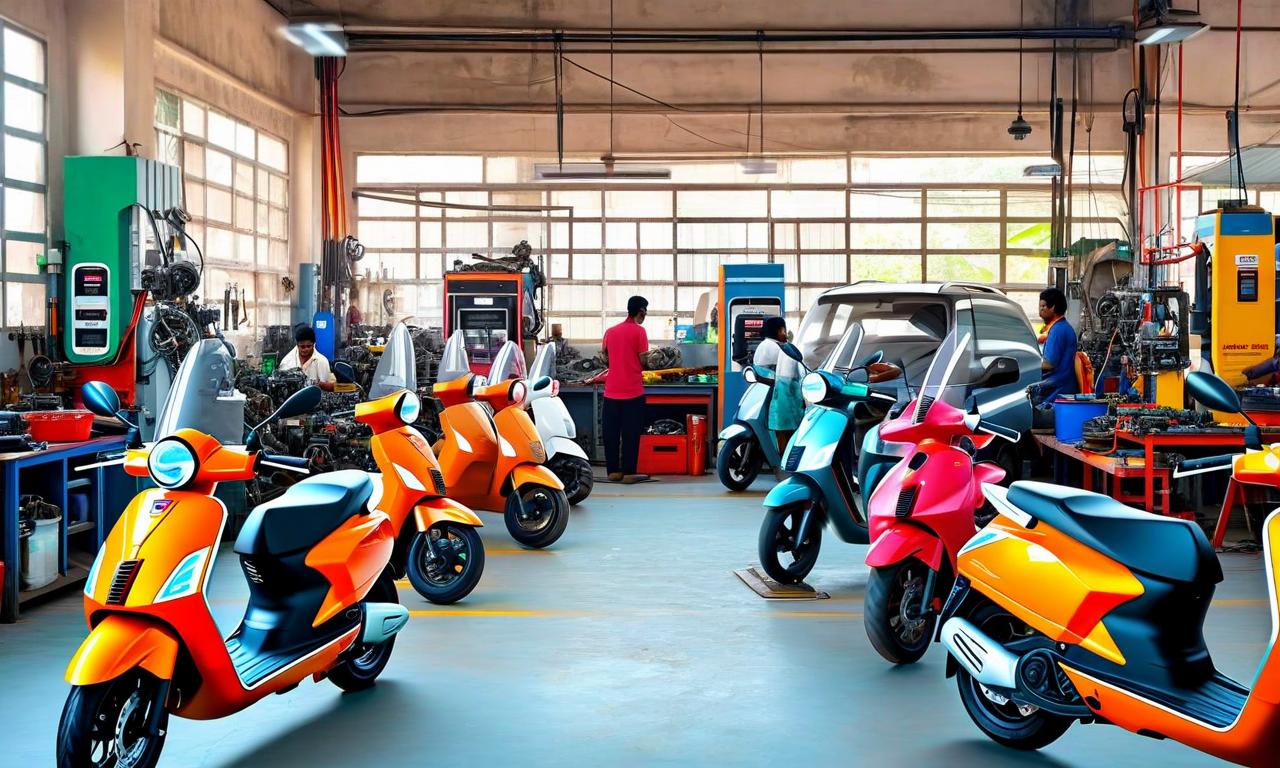Auto Industry Braces for Impact as GST Reforms Take Effect, Commerce Minister Pledges Support
New GST rates for the Indian automobile industry have been implemented, reducing taxes on certain vehicles and standardizing rates for auto parts. Commerce Minister Piyush Goyal pledged to address dealers' concerns with the Finance Ministry. The reforms aim to balance domestic manufacturing protection with fair competition. Tractor prices are expected to decrease by ₹40,000-60,000, benefiting farmers. These changes, coinciding with the festive season, are anticipated to boost long-term customer demand across various automobile segments.

*this image is generated using AI for illustrative purposes only.
The Indian automobile industry is set for significant changes as new Goods and Services Tax (GST) rates come into effect, prompting Commerce and Industry Minister Piyush Goyal to address concerns raised by auto dealers.
GST Reforms and Their Impact
The GST Council has implemented a series of tax rate adjustments that are poised to reshape the automotive landscape:
- GST on certain petrol, petrol hybrid, LPG, and CNG cars reduced from 28% to 18%
- Electric vehicles continue to enjoy a preferential 5% GST rate
- All automobile parts now subject to a uniform 18% taxation
These changes are expected to have far-reaching consequences across various segments of the auto industry, from passenger vehicles to tractors.
Minister's Commitment to Address Concerns
During a Federation of Automobile Dealers Association event, Commerce and Industry Minister Piyush Goyal announced his intention to raise GST-related issues affecting automobile dealers with the Finance Ministry. This move underscores the government's responsiveness to industry concerns and its commitment to fostering a conducive business environment.
Balancing Act: Domestic Manufacturing and Fair Competition
Goyal emphasized the government's dedication to striking a balance between protecting domestic car manufacturing and ensuring fair competition from new entrants in the Indian market. This approach aims to create a robust and competitive automotive sector that can thrive in both domestic and international markets.
Tractor Industry Set for Price Adjustments
One of the most significant impacts of the GST reforms is expected in the tractor segment. Bharat Madan, CFO of Escorts Kubota, provided insights into the anticipated price changes:
| Impact on Tractor Prices | |
|---|---|
| Price Reduction Range | ₹40,000-60,000 |
| Beneficiaries | Farmers |
This substantial price reduction is likely to boost affordability and potentially drive up demand in the agricultural sector.
Industry Outlook: Long-term Benefits and Seasonal Opportunities
Industry leaders view these GST reforms as beneficial for long-term customer demand. The timing of these changes is particularly significant, coinciding with the approaching festive season—a period traditionally associated with strong consumer purchases in India.
The combination of reduced tax rates and the festive season could create a favorable environment for increased sales across various automobile segments. Dealers and manufacturers alike are likely to capitalize on this opportunity to boost their sales figures and clear inventory.
As the industry adapts to these new tax structures, all eyes will be on how these changes translate into market dynamics, consumer behavior, and overall sector growth in the coming months.































